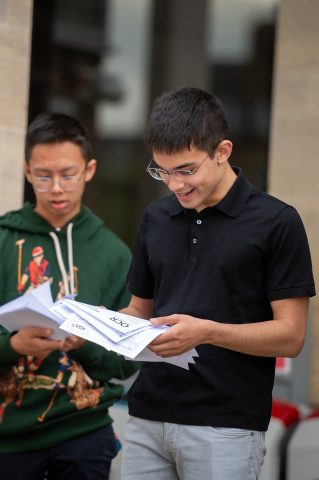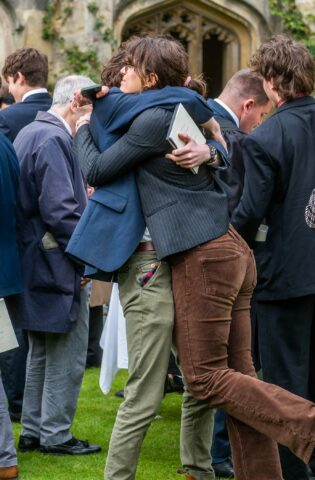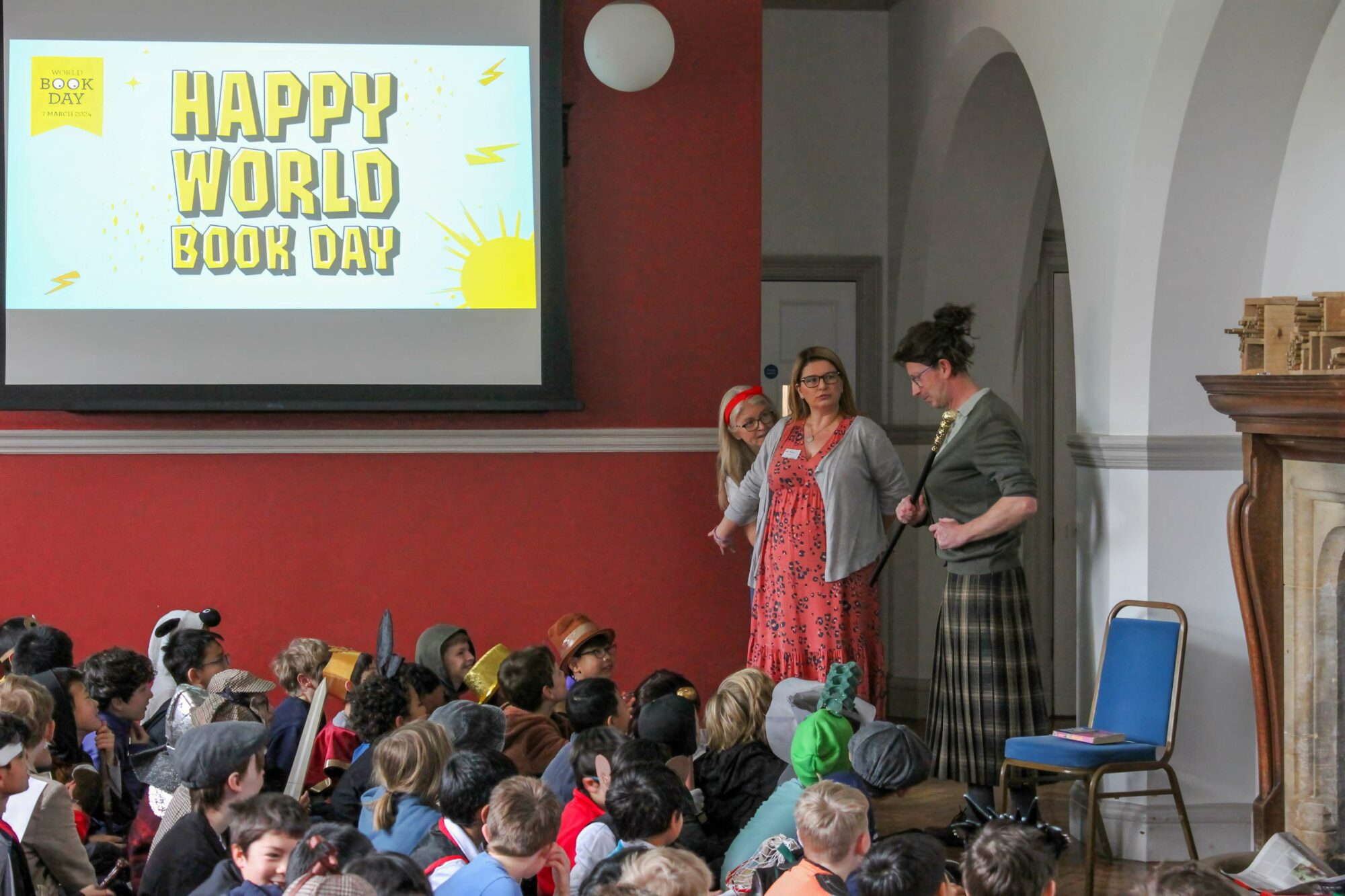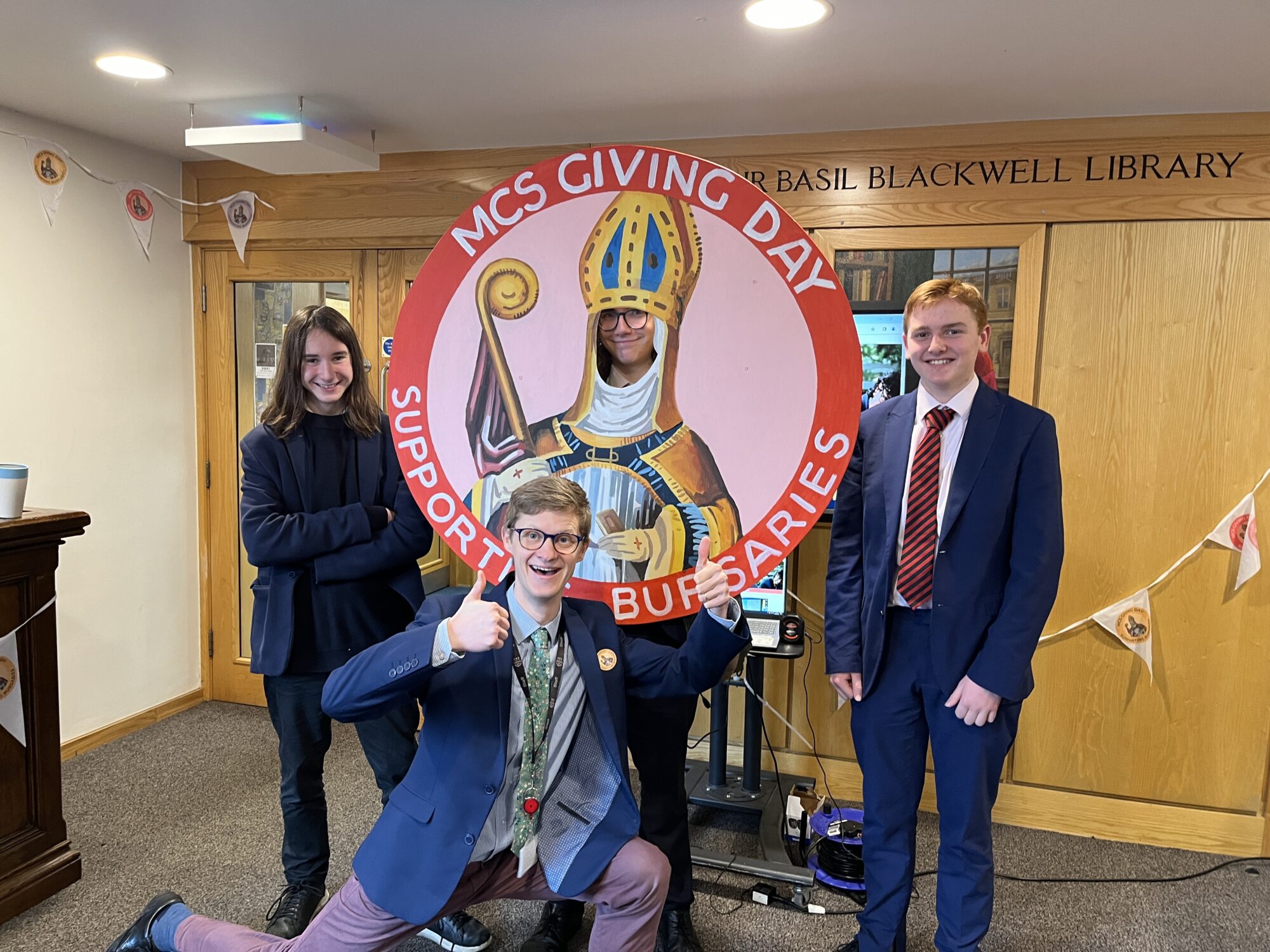MCS was recently informed of the death on 16 October 2018 of former teacher Edward Greene by his friend, Brian Martin.
Edward taught Classics and English under Bob Stanier for two years in the late 1960s, before going on to found Greene’s Tutorial College. He will be greatly missed by his friends, many of whom he first met at MCS, and family.
The following obituary was published in The Times.
‘There was something of the eternal schoolboy about Edward Greene, albeit a large one along the lines of Tweedledum or the adult Billy Bunter. A jovial man who occasionally turned self indulgence into an art form, he focused on his own peculiar enthusiasms. It was perhaps his persistence in feeling that life was a private adventure that enabled him to foster a small but influential innovation in education.
Edward Greene’s Tutorial Establishment, which opened in Oxford in 1967, was the first in England to teach large numbers of pre-university students using the university method: one-to-one tutorials, rather than in the classroom. Carefully pairing pupils and teachers (mostly postgraduates at Oxford), his bespoke approach could have remarkable results, especially with children who had not got on with conventional schooling.
Within a decade, Greene’s was specialising in coaching for Oxbridge entrance (then attempted after A levels). Its reputation soon made Greene’s the first port of call for those who needed to improve grades. It was largely Greene’s that dispelled the negative connotations of the crammer.
Many of the retake colleges that sprang up in Oxford and elsewhere had their roots in it and were often run by those who had taught there. Its success may, in some measure, have spurred the rise of the private tuition industry in Britain, now such a prominent feature of many schoolchildren’s lives and of their parents’ bank balance.
Greene’s was not cheap, at one point its fees were steeper than Eton’s. Its roster of pupils — 350 full-time students every year at its peak in the 1980s — was almost as prestigious. Many there had, like Greene, been at Eton and others included the children of pop stars and European royalty. One year he had on his books the seven daughters of an African chief.
Part of its cachet was the social life organised for its pupils, who boarded with landladies. There were parties in college gardens and on barges along the Isis. These gatherings reflected Greene’s own affability. His Dickensian offices on Pembroke Street, Oxford, were similarly an extension of his own tastes. Coal fires, rather than central heating, warmed the warren of rooms, which were connected by a staircase that Greene’s old English sheepdog, Dutchman, would lollop down. A grandfather clock kept time. Staff were known by antiquated if not confected titles such as preceptor.
The hand-stitched, crested brochures were printed on paper sourced in Sweden, using a Caslon font with long ligatured letters. Greene had a horror of ranking machines and would go berserk if envelopes were posted with any stamp other than one bearing simply the Queen’s head.
Had these fripperies been mere imitation of tradition the effect would have been fatally bogus. As it was, their fussiness was entirely true to Greene’s meticulous nature — he once took a builder to France to show him the original of a hearthstone he wanted. The school was an almost accidental by-product of his way of life, rather than of any vision. The suspicion was that it functioned in large part to sustain his epicurean needs.
Except for an indifference to most forms of art, he was almost Wildean in his aestheticism. Very much one of the sights of Oxford, navigating Carfax on his Dutch bicycle, the brakes of which worked by pedalling backwards, Greene wore a dark three-piece suit, gold chain and pocket watch, and Old Etonian tie in winter. Summer required cream linen.
Greene’s suits came from Henry Poole on Savile Row, his shoes from Lobb and his bowler hats from Lock. From his tours of Scandinavia, he would sometimes return with a new young chef, for he kept a lavish table in Pembroke Street, where three or four-course lunches were the norm. He bought wine at auction and smoked distinctive, twisted culebra cigars.
His favoured haunts included the original Quat’ Saisons in Oxford and the Elizabeth, for years the city’s premier restaurant. Its Spanish owner would telephone Greene to alert him when his favourite dish, grilled scampi, was on the menu. Motoring was done in a series of vintage cars, which included a Jaguar, a Daimler and a Bentley. Greene knew that there was exactly enough space outside Simpson’s in the Strand to park the last of these.
He hated driving, however, as he was liable to fall asleep after a meal, notoriously, he would often drop off post-luncheon while interviewing prospective parents in front of the fire. Hitchhikers on the A40 would be surprised to be asked from the Bentley’s window if they drove.
Such seeming contradictions were fundamental to Greene. For, improbably ,in matters of the spirit he had belonged since adolescence to the Free Presbyterian Church of Scotland, which cleaves to modesty in all things and can look askance on worldly pleasures. Greene would adopt a lugubrious demeanour on the Sabbath and when ministers from the church came from London on Sundays for events being staged for pupils, announcements (on noticeboards) would have to be hastily removed.
Greene did not take a paper on a Monday (it having been printed the day before) and, more seriously for the eventual health of the business, refused to advertise in the Sunday newspapers. Christmas not being observed, friends — acquaintances really, for he had few close friends and was a confirmed bachelor — would receive New Year’s cards engraved with portraits of unbending Scottish divines.
Strong views rather ran in the family. A descendant of the 18th-century founder of the Greene King brewery, now one of the largest in Britain, Edward Paul Campbell Greene was born in 1937 at Berkhamsted. His father, Ben, whose own father had made money from coffee in Brazil, was a pacifist drawn in the 1920s to socialism. As private secretary to Ramsay MacDonald, he was a key figure in the early organisation of the Labour Party constituency network.Clement Attlee became Edward’s godfather.
However, Ben became mixed up with those who opposed war with Germany not out of idealism but in admiration of Hitler. Denounced as a Nazi sympathiser, he was, like Sir Oswald Mosley, incarcerated in 1940. (The episode inspired his cousin Graham Greene’s novel The Ministry of Fear).
At 6ft 8in, Ben Greene was so tall his bunk in Brixton Prison had to be extended. A fellow inmate was the MP Archibald Maule Ramsay, founder of the antisemitic Right Club. It was he who suggested that the infant Edward (then known as Paul) should go to Eton. Ramsay is said to have paid the school fees when Ben lost his suit for false imprisonment against the home secretary, leaving him in straitened circumstances.
This perhaps contributed to Greene’s parents spending much time apart. His mother, Leslie, who lived on a farm in Kinross-shire and whose family was friendly with Keir Hardie and MacDonald, could be somewhat peremptory. After once coming down to Eton to take Greene out to tea, Leslie only realised that she had dragged off the wrong boy when ten minutes later he asked if he could go back to where his parents were waiting.
Greene had two sisters: Anne, who became noted in the 1960s as a Roman Catholic doctor who advocated birth control, having had to juggle work with 11 pregnancies, and Margaret, later known as Leslie von Goetz, who had forthright political opinions of her own.
Although he did not have such strong opinions, Greene could be dogged.During his National Service with the Royal Navy, he declined to be commissioned as he did not want to share a room aboard ship, preferring to sling his hammock where he wished.
He tutored his captain in Greek, then read Greats at Wadham College, Oxford. After teaching at Magdalen College School,he became tutor to a young Scottish earl.
In the 1990s, Greene’s began to be overtaken by competitors. Having dismissed computers as a fad and lost key staff (who were not well paid), Greene soldiered on until selling the business in 2005 and retiring.
If anyone may experience heaven as eating foie gras to the sound of trumpets, it is surely he.’
 MCS ranks among the top independent secondary schools in The Sunday Times Schools Guide 2024, placed seventh nationally and third in the Southeast.
MCS ranks among the top independent secondary schools in The Sunday Times Schools Guide 2024, placed seventh nationally and third in the Southeast.

 39 of our pupils achieved 10 or more 8 or 9 grades in 2023.
39 of our pupils achieved 10 or more 8 or 9 grades in 2023.
 Your donations contribute over £150,000 a year to bursaries as well as building an
Your donations contribute over £150,000 a year to bursaries as well as building an 




